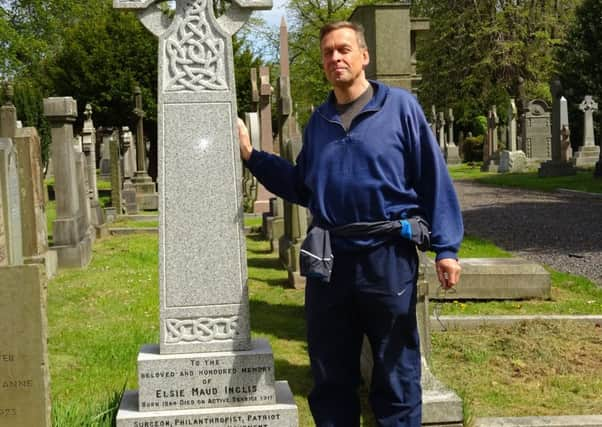Edinburgh tour guide writes the Elsie Inglis story


Elsie Inglis and the other women who went out from Edinburgh to tend the wounded at the front line helped save thousands of lives during the 1914-18 conflict.
Now her pioneering work has been immortalised in a novel by city writer Gary Mill.
Advertisement
Hide AdAdvertisement
Hide AdMy Good Lady is a dramatised account of Dr Inglis’ formation of the Scottish Women’s Hospitals for Foreign Service and the unit’s valiant service in Serbia, Romania and Russia.
Mr Mill said Dr Inglis had “virtual saint-like status” in Serbia but her story had become “hazy” in her home city.
He said: “I am a graduate in history from Edinburgh University and have worked as an Edinburgh tour guide for many years.
“I have always been fascinated by the past, in particular with the characters that lived and worked in the city. My first son, Ben, was born in Edinburgh’s Elsie Inglis Maternity Hospital and I was curious to find out more about Elsie and her past.
Advertisement
Hide AdAdvertisement
Hide Ad“I was annoyed by all the statues in Edinburgh of rich men who had not really done very much. Why no statue of Elsie?”
After research, which included reading many of the letters Dr Inglis sent back from the front, Mr Mill wrote a two-hour film screenplay and also the script for a four-part TV series about her, but they were never commissioned. He then decided to adapt the scripts into novel format so Dr Inglis’ story could be heard.
“I was inspired to write the book in the hope that more people would take the time to read about her great achievements and honour her as one of the greatest Scottish women of the 20th century.”
Dr Inglis was moved by the carnage of the First World War and wanted to help, but when she approached the government with a plan to use women’s medical skills in female-run field hospitals, the response was curt. “My good lady, go home and sit still,” she was told.
Advertisement
Hide AdAdvertisement
Hide AdShe ignored the advice and set up hospitals in Serbia, Ukraine and Romania, acting with support from the French and Serbian governments.
She died of cancer in 1917 and was buried in Dean Cemetery.
Mr Mill’s book has already been highlighted in Serbian newspapers. He has written four other books which have featured in a number of Amazon Top-100 fiction charts.
My Good Lady can be downloaded free from Amazon Kindle until Friday.